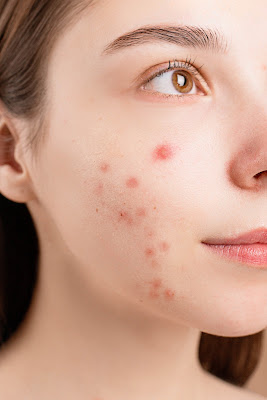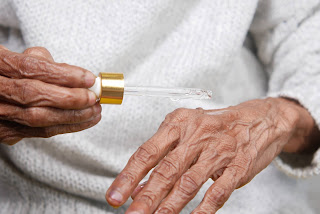How to get rid of acne?
What is acne?
When your skin follicles are clogged with oil and dead skin cells, acne develops as a skin disorder. Acne is a very common condition, and the majority of individuals have had it at some point in their lives, particularly when they were teenagers and their sebaceous glands were producing more oil.
What causes acne?
As your skin's pores become blocked with oil and dead skin cells, acne develops.
Each pore is associated with a sebaceous gland, which creates sebum, an oily material. Propionibacterium acnes, often known as P. acnes, can develop more rapidly when excess sebum clogs pores.
P. acnes is attacked by your white blood cells, causing skin irritation and acne. Although some cases of acne are more severe than others, whiteheads, blackheads, and pimples are common signs of the condition.
Acne development may be influenced by a variety of variables, such as:
- infections
- genetics
- food
- stress
- hormone changes
The best clinically proven methods for decreasing acne are standard treatments. You can also attempt at-home remedies, though further study is required to determine their efficacy. These are 14 natural treatments for acne.
How to treat acne?
- Mild acne
OTC drugs, such as gels, soaps, pads, creams, and lotions that are applied to the skin, can be used to treat mild acne.
For sensitive skin, lotions and creams work well. Alcohol-based gels are excellent for oily skin because they dry up the skin.
The following active chemicals may be found in OTC acne treatments:
- Resorcinol: aids in the breakdown of whiteheads and blackheads
- Benzoyl peroxide: destroys microorganisms, quickens skin renewal, and reduces sebum production
- Salicylic acid: aids in the disintegration of blackheads and whiteheads and lessens soreness and inflammation.
- Sulfur: It's unclear exactly how this operates.
- Retin-A: promotes cell turnover to help unclog pores
- Azelaic acid prevents sebum eruptions, strengthens the cells that line the follicles, and inhibits bacterial growth. While there is a cream for acne, rosacea is treated with other types.
- Starting with the weakest concentrations is advised because some preparations can irritate, irritate, or burn the skin when used for the first time.
Usually, these adverse effects go away with sustained use. If not, visit a physician.
- Sever acne
More serious cases can be treated by a dermatologist, or skin expert.
They might suggest an oral or topical antibiotic, or a gel or cream that is stronger than OTC drugs.
- Corticosteroid injection
- Oral antibiotics
- Oral contraceptives
- Topical antimicrobials
- Isotretinoin
How to get rid of acne?
- Use warm water and a mild acne-specific soap to wash your face no more than twice daily.
- Avoid popping pimples as this increases the likelihood of scarring. Scrubbing the skin or popping pimples could force the infection deeper, resulting in additional blockage, swelling, and redness.
A pimple that needs to be quickly removed for cosmetic reasons can be treated by an expert.
- Don't touch the face, please.
- When speaking, keep the phone away from your face because it probably contains sebum and skin debris.
- Often wash your hands, especially before using lotions, creams, or makeup.
- When eyeglasses accumulate sebum and skin debris, they should be cleaned frequently.
- Hair tends to accumulate oil and skin debris, so keep it clean. Steer clear of oily hair products, such as ones with cocoa butter.
- Prevent too much sun exposure because it can increase sebum production in the skin. Sunburn risk is increased by a number of acne drugs.
- Prevent stress and anxiety since they might trigger a rise in the hormones cortisol and adrenaline, which aggravate acne.
- In hot and humid areas, try to maintain a cool, dry environment to avoid perspiring.







Comments
Post a Comment